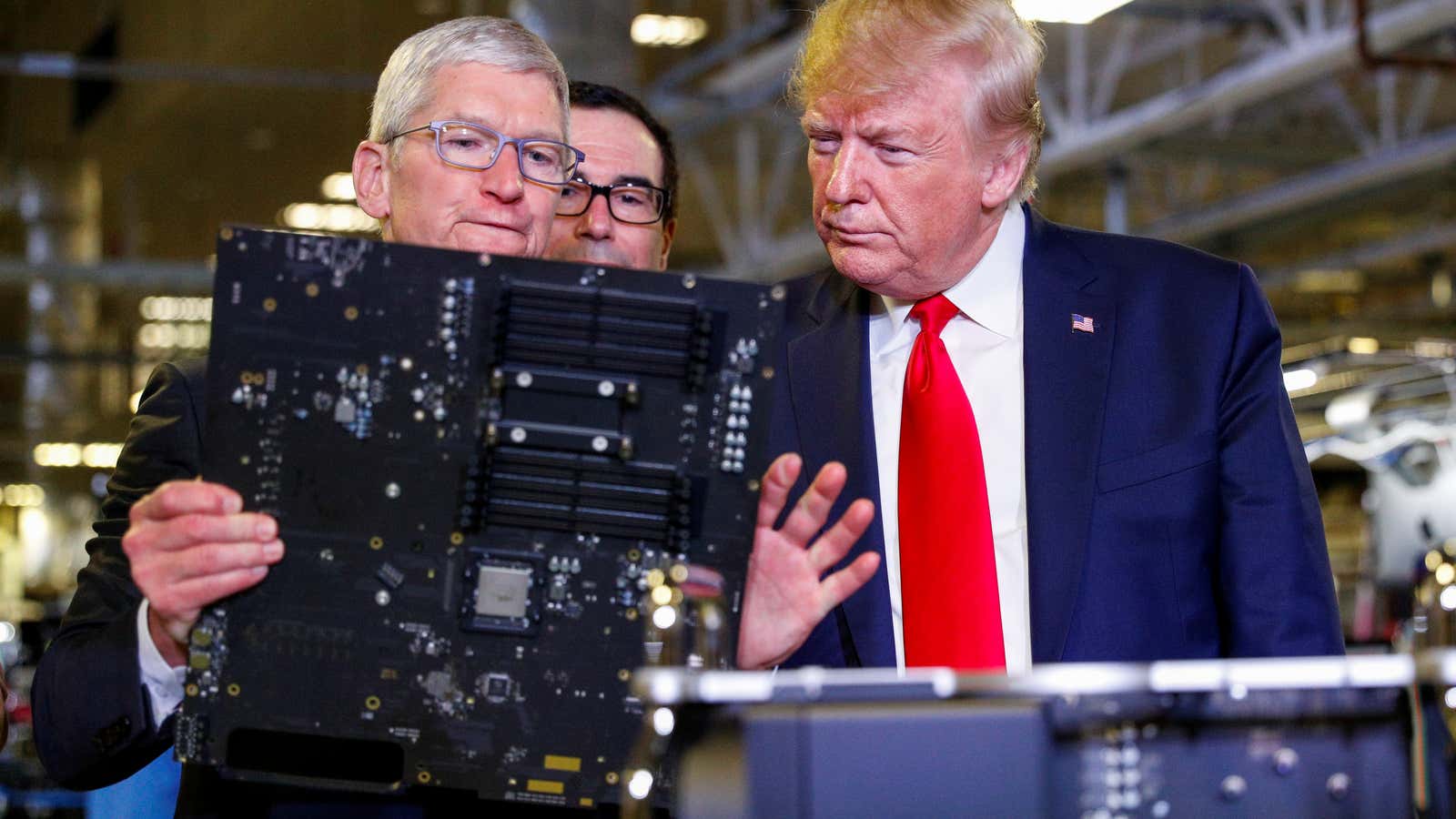Though many leaders in corporate America have gone out of their way to distance themselves from US president Donald Trump, a new working paper shows that public company CEOs still heavily favor Republicans.
Researchers at Harvard Law School and Tel Aviv University found that CEOs of the 1,500 largest US public companies donate “disproportionately more” to the Republican party and its candidates, with the median CEO directing 75% of his or her political contributions to Republicans. They also found that Republican-leaning CEOs lead companies with almost twice the asset value of companies led by Democratic-leaning executives.
The study looked at campaign contributions by more than 3,800 CEOs of S&P 1500 companies between 2000 and 2017. To be classified as “Republican” or “Democratic,” at least two-thirds of the executive’s donations had to go to either party; otherwise they were classified as “neutral.” Overall, roughly 57% of the CEOs were classified as Republicans, and about 19% as Democrats.
The researchers also looked at how CEO political preferences differ by geography, based on the location of the company headquarters. In the Northeast and in the West, Republican CEOs outnumber Democratic CEOs by less than 2-to-1, while Republican CEOs are about seven times as numerous as Democratic CEOs in both the Midwest and South.
Indeed, the Republican tilt was evident in all regions and sectors. The industries with the strongest Republican preference were the energy, manufacturing, and chemical sectors. Both male and female CEOs were more likely to be classified as Republicans, although the preference was stronger among the men than the women.
While public companies are not required to disclose their corporate political spending, the researchers found that Republican CEOs were less likely to make the political spending of their companies transparent to investors. They also found that having a female CEO was associated with increased transparency. By industry, the most transparency could be found at companies in the energy, health, and utility sectors (which are heavily regulated areas, and the pressure for transparency may be greater).
Are CEOs influenced by their own political preferences when deciding whether and how to spend corporate funds on politics? The lack of full disclosure makes it harder to say.
In 2016, Bank of America CEO Brian Moynihan told The Wall Street Journal that job descriptions for corporate leaders “now include driving what we think is right. It’s not exactly political activism, but it is actions beyond business.”
But, another study from 2018, which examined public statements in national media, on Twitter, and in corporate transcripts, concluded that CEO activism is a “fairly limited practice” and “dominated by a few vocal outliers.” Indeed, CEO activism is a double-edged sword—in a public role, where you need to build loyalty with with employees, customers, and investors, political stances that can attract some can easily alienate others.
